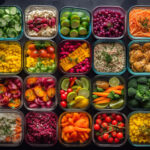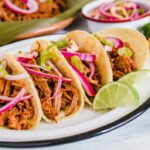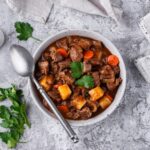A well-balanced and nutrient-rich diet is crucial during pregnancy to support the health and development of both the mother and the growing baby. For lacto-ovo vegetarian women, who abstain from meat and fish but consume dairy products and eggs, it is important to pay extra attention to certain nutrients, including omega-3 fatty acids. By carefully planning meals and incorporating a variety of plant-based sources, it is possible to meet these nutrient needs and enjoy a healthy pregnancy.
Omega-3 fatty acids, particularly docosahexaenoic acid (DHA) and eicosapentaenoic acid (EPA), play a vital role in fetal brain and eye development. They also offer numerous benefits to the mother, such as reducing the risk of preterm labour, supporting cardiovascular health, and potentially reducing the likelihood of postpartum depression.
While fatty fish is a common source of omega-3 fatty acids, it is important for lacto-ovo vegetarian women to explore alternative options. Here are some plant-based sources of omega-3 fatty acids:
- Flaxseeds and Chia Seeds: These tiny seeds are packed with omega-3 fatty acids and can be easily incorporated into the diet. Ground flaxseeds or chia seeds can be sprinkled on cereals, yogurt, or added to smoothies for an omega-3 boost.
- Walnuts: Walnuts are not only a great source of healthy fats but also contain omega-3 fatty acids. They can be enjoyed as a snack, added to salads, or used in baking.
- Hemp Seeds: Hemp seeds are rich in omega-3 fatty acids, as well as protein and fibre. They can be sprinkled on salads, added to granola or yogurt, or incorporated into homemade energy bars.
- Algal Oil: Algae-based supplements or oils derived from microalgae are a suitable option for vegetarian women. These supplements contain DHA and EPA, which are directly derived from the microalgae and provide the same health benefits as fish-based omega-3 supplements.
In addition to omega-3 fatty acids, it is essential to ensure an adequate intake of other important nutrients during pregnancy:
- Protein: Opt for plant-based protein sources like legumes, tofu, tempeh, seitan, eggs, and dairy products. These provide essential amino acids necessary for the development of the baby’s organs and tissues.
- Iron: Plant-based sources of iron include leafy green vegetables, lentils, beans, fortified cereals, and dried fruits. Consuming these with vitamin C-rich foods, such as citrus fruits or tomatoes, can enhance iron absorption.
- Calcium: Dairy products like milk, yogurt, and cheese are excellent sources of calcium. If you prefer non-dairy options, choose calcium-fortified plant milks, tofu, almonds, sesame seeds, and leafy greens like kale and broccoli.
- Vitamin B12: This vitamin is primarily found in animal products, so it’s important for lacto-ovo vegetarians to ensure adequate intake. Fortified cereals, nutritional yeast, dairy products, and eggs can be good sources of vitamin B12.
- Folate: Consume foods rich in folate, such as leafy green vegetables, lentils, beans, fortified grains, and citrus fruits. Folate plays a crucial role in preventing birth defects of the brain and spinal cord.
It’s important to consult with a healthcare professional or registered dietitian to ensure you are meeting your specific nutrient needs during pregnancy. They can provide personalized guidance and may recommend appropriate supplements, such as prenatal vitamins, to fill any gaps in your diet.
A lacto-ovo vegetarian diet can meet the nutrient needs of both the mother and the growing baby during pregnancy. By including plant-based sources of omega-3 fatty acids, such as flaxseeds, chia seeds, walnuts, and algal oil, and paying attention to other essential nutrients, you can enjoy a healthy and balanced pregnancy. Remember to seek professional guidance to ensure you are getting the necessary nutrients for a successful pregnancy journey.








